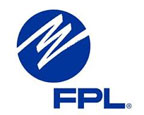
 By JIM SAUNDERS
By JIM SAUNDERS
THE NEWS SERVICE OF FLORIDA THE CAPITAL, TALLAHASSEE, November 20, 2012………Florida Power & Light says customers will benefit in the future because of “certainty.” Critics say, not so fast.
But as state regulators weigh a controversial settlement proposal that would lead to a $378 million increase in FPL’s base rates in January, they also will have to consider hundreds of millions of dollars in additional rate hikes that would come later for new power plants.
FPL and some major power users are arguing this week that the state Public Service Commission should approve the proposed settlement, which builds in base-rate increases during the next four years to help pay for power-plant projects at Cape Canaveral, Riviera Beach and Port Everglades.
Robert Barrett, FPL’s vice president of finance, testified Tuesday that the additional increases — known in utility lingo as “generation base rate adjustments,” or GBRAs — are an “essential component of this agreement.” He said customers would get certainty about how much they will pay in the coming years, while the efficient new plants would help reduce the amounts that FPL — and customers — spend on natural gas for generation.
“GBRA is in the best interest of customers,” Barrett said.
But the state Office of Public Counsel and other opponents of the proposed settlement argue FPL should have to file additional rate cases before it can get increases for the plants. They say that would allow the Public Service Commission to further scrutinize the utility’s operations and finances to determine if rate increases are needed during the four-year period.
“Talk about rate certainty,” Associate Public Counsel Joseph McGlothlin said during opening arguments before the commission Monday. “(Under the proposed settlement), it is certain that rates will go up during that time frame.”
The commission held marathon meetings Monday and Tuesday to hear testimony about the proposed settlement agreement, which FPL announced in August with representatives of industrial power users, south Florida hospitals and federal agencies such as military bases. The proposal is opposed by the state Office of Public Counsel, which represents consumers in utility cases, and groups such as the Florida Retail Federation.
Commissioners likely will make a decision on the proposal in December. They scheduled three days of testimony this week, but worked late into the evening Monday and expected to do the same Tuesday as they tried to get done in plenty of time for Thanksgiving.
“It is going to be a long haul today,” commission Chairman Ronald Brise said as Tuesday’s hearing started shortly after 9 a.m.
The proposed settlement has been highly controversial, in part, because FPL announced it just days before the commission was scheduled to start a hearing in August on a $690.4 million rate proposal that the utility filed earlier in the year. The settlement also is controversial because the Office of Public Counsel has not agreed to it.
The Office of Public Counsel argues that the utility’s base rates should decrease — not increase. — by as much as $253 million next year. If the commission rejects the settlement, it then likely will decide in January whether to approve the original $690.4 million rate proposal.
The proposed settlement includes a complex mixture of financial issues. One controversial part of the settlement, for example, would allow FPL to earn a 10.7 percent “return on equity,” a closely watched measure of profitability.
Another key part is the potential future base rate increases for the new power plants. Under the proposal, FPL would receive a $378 million base-rate increase in January, with an additional $165.3 million increase in June when the Cape Canaveral plant starts operating.
That could be followed by a $236 million increase after the Riviera Beach plant starts operating in 2014 and a $218 million increase after the Port Everglades plant cranks up in 2016, according to information presented at Tuesday’s hearing.
At least next year, the proposed settlement would have relatively little impact on customers’ monthly bills. Even after the increase for the Cape Canaveral plant in June, residential customers who use 1,000 kilowatt hours of electricity a month would see increases in their bills of slightly less than $1, FPL says.
That is largely because the base-rate increases would be offset by reductions in power-plant fuel costs, which are a separate part of customers’ overall bills. It is more difficult to project the amounts of customer bills in later years because of uncertainty about costs such as fuel.


Be the first to comment